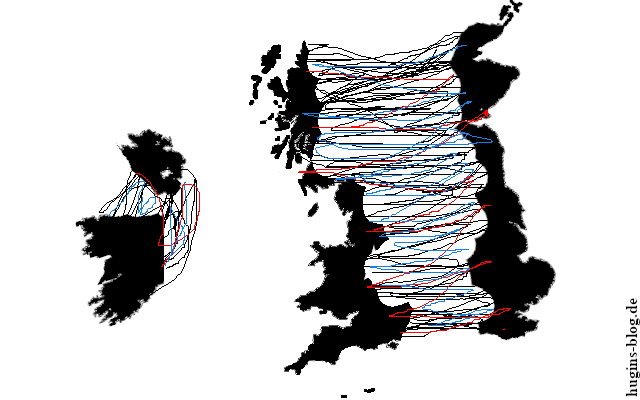This article (Brexit and the decay of political culture) is the translation of a german blog-entry (deutsch): Der Brexit und der Verfall der politischen Kultur.
Read more (in English):
I am not first and foremost talking about the question „Brexit or no Brexit“, „Deal or no deal“ or about how majorities in this question look like in Great Britain; I am not talking about the questions whether votings have been manipulated or the decisions of citizens may relay on pieces of wrong information. All these have been discussed already in public.
In the larger context I am concerned about the decay of political culture showing up in this question. Over centuries politics has been influenced by the knowledge of great political writings. Written by great spirits, which thought intensely about what matters. Contrary to this people today just look for changing conditions, short-lived news and deadlines.

Plebiscites harm democracy
Over centuries the political discourses in western societies couldn’t be imagined without the knowledge of the Politics of Aristotle. In his political writings he described the possibility of perversion of any political system. For each basic political system he described positive and negative manifestations – even for democracy. The negative manifestation of democracy he describes as a tyranny by the majority.
Exactly at this point we have to review plebiscites, which became so popular in the last decades. According to their supporters they should be the embodiment of democracy, but they never speak about negative effects. Too often plebiscites are about simple questions and simple decisions – for or against – and exclude in this way any else of conceivable solutions. I disagree: Plebiscites are no good democratic affair, but a medium of suppression and political incapacitation. A medium of polarisation and splitting, and of unobjective simplifications, which are opening gates for manipulations, disinformation, extremism and laziness of thinking.
Each citizen a politician
With this in mind I am an advocate of parliamentarian democracy, because it leads to more reflected solutions and includes on a larger scale political debate and consensual reconciliation of interests. Well, some people are always talking about „the top brass“ or „those up there“, but I disagree, because „politician“ is no special kind of humans. Politics is the „Craft of States“, the regulation of public affairs („res publica“). If you talk about public affairs, you already practice politics – so you are a „politician“. You’re all welcome. Additionally every citizen not only has the freedom of speech and expression, but also to take sides, join a party or to form a party. Every citizen could be elected to a parliament. He just has to be elected, this is to get a mandate by fellow citizens.
It is obvious that those extremists, who blame the „top brass“ and assert to speak themselves in the name of „the people“ are plainly lying. The people gave their mandates to the „top brass“ – even if not always all of them support every decision made.
About public interest
According to Aristotle the good constitutions are characterized by the fact, that the political decisions are made for the good of all citizens, because they all have to live under these laws. In a democracy this means that no part of all the citizens -majority or not- should act in a way unacceptable to other parts. This would be against the public interest (or public good).
In a good democracy such a polarizing question must not be answered by plebiscite. Instead the attention has to be turned to find a consensus including all interests. Of course there are political parties and always different views about which way to choose. But this way must not lead against other parts of citizenry. Even citizens with different views deserve respect and their views have to be visible in the result. A Yes-or-No-Question is not suitable at all: it is harming social peace and is never in the public interest.
Renouncement of participation and the decay of political culture
With regard to his educational origin I sadly get the impression of Boris Johnson, he abandoned himself during his studies to amusement and debating, instead of penetrating and reflecting classical writings. – How could he forget about Aristotle anyway?! – Well, because he is totally stuck and deadlocked drastically and won’t change his position any more, the only remaining way to solve this Gordian knot is to give back his mandates and retire his political career.
The Brexiteers renounce to further co-design Europe. In view of the future challenges they put their heads in the sand. A lot of people are unable to cope the complexity of politics in the european context. For sure there is a lot, what should be done different. Even after a Brexit Great Britain will have to deal with the european countries, but there will be much lesser influence. A politics of consensus in the UK had implied chances to find solutions to bring forward all countries. The difficulties of the question Brexit-or-not/Deal-or-no-deal at least result from open challenges in the domestic policy, which are a result from splitting and renunciation of public interest (public good). And this at last is a result of the decay of political culture.
